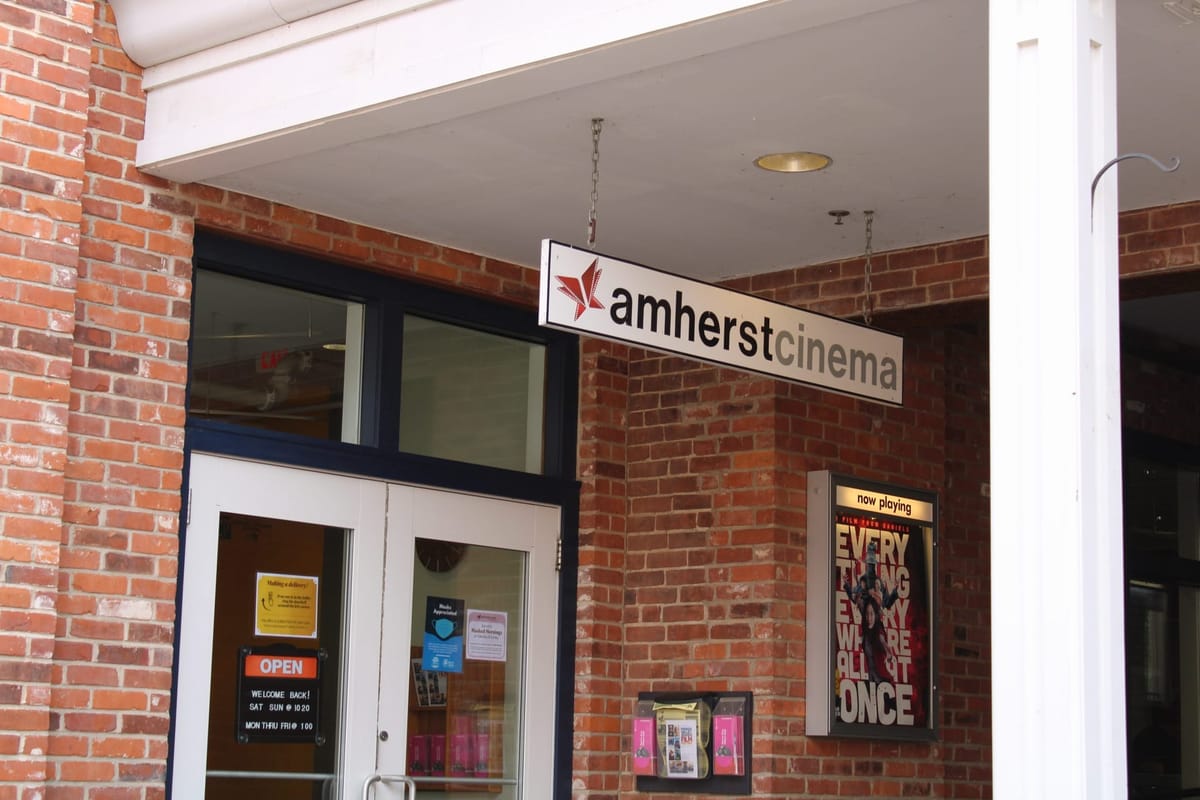The Common and Amherst Cinema Lose Federal Grants
On May 2, The Common and Amherst Cinema were among many arts organizations that lost National Endowment for the Arts grants.

On May 2, hundreds of arts organizations, including Amherst Cinema and the Amherst College-affiliated literary magazine, The Common, received notice that their National Endowment for the Arts (NEA) grants have been terminated to “focus funding on projects that reflect the nation’s rich artistic heritage and creativity as prioritized by the president.” The notice came shortly after President Donald Trump proposed eliminating the NEA in fiscal year 2026 (FY26).
As the largest nationwide funder of arts and arts education, providing a total of $163 million in grants in FY24, NEA has faced significant funding cuts since Trump’s inauguration. In February, the Trump administration eliminated the next round of funding for NEA’s “Challenge America” program, which would have provided $2.8 million to help underserved communities access the arts. NEA now also prohibits grant applicants from using federal funds to “promote gender ideology” in response to Executive Order No. 14168.
The Common has been receiving annual NEA grants since 2014, when it became eligible for grant applications after three years of being in operation. According to Jen Acker ’00, The Common’s founder and editor-in-chief, the funds have been used to pay editorial staff, writers, artists, translators, and designers.
“The mandate is quite broad — it says something like ‘to support the publication and promotion of The Common,’” Acker said. “The Common publishes a lot of works in translation [...] so usually in our grant applications, we describe those international portfolios that we publish and the grant helps us to pay for this.”
Having heard about recent grant terminations from many federal agencies, including the Institute of Museum and Library Services and the National Science Foundation, Acker said The Common’s grant loss was “in line with what we’ve been seeing so far.” However, she still felt “very disappointed,” especially since the notice came after the funds, a total of $12,500, had already been promised.
“We are a small organization, and the number of people that we pay through these grants is significant,” Acker said. “For us, as an organization that really prides [itself] on nurturing authors and providing a platform for them … it’s pretty devastating to not be able to.”
Acker shared that she has discussed the funding losses with the college, which also financially supports The Common. The Common has also recently emailed its newsletter list, inviting readers to subscribe to the magazine to best support authors.
“We’ve set a goal of 100 new subscriptions by the end of the month, and we’re hoping to reach that goal,” Acker said. “It’s been going well.”
Similarly, Amherst Cinema currently faces a $20,000 grant loss that would leave two-thirds of its Bellwether series unfunded. The series, aiming to showcase experimental approaches to nonfiction cinema, has been receiving NEA funding for five years to screen films that otherwise remain self-distributed or only play in film festivals. According to Yasmin Eisenhauer, the cinema’s executive director, the funding loss means that the cinema would be relying more on support from its community and alternative sources. Since March 7, the cinema has already implemented cost-reduction measures, such as discontinuing the least-attended show times and reducing staff, due to a drop in memberships from pre-pandemic levels.
“Naturally, we were all disappointed to learn of the termination of our NEA grant,” said Yasmin Eisenhauer, the cinema’s executive director. “At the same time, we remain deeply committed to our Bellwether series as it is a wonderful expression of our values and mission.”
After stating that the grant termination is a “clear breach of contract” in its media statement, the cinema submitted a letter of appeal to the NEA on May 9. Eisenhauer said that although she cannot comment on pending action, she has been touched by the community’s strong show of support in the meantime.
“They made their voices heard by sending advocacy letters to elected officials, and to ensure Bellwether and the Cinema continues, made charitable gifts of all sizes,” Eisenhauer said. “We’re deeply grateful for the outpouring of love and remain committed to elevating the film arts in Western Massachusetts.”
Though unsure about the grant loss’s long-term impacts, Acker expressed a similar dedication to maintaining The Common’s programs.
“I think the literary arts community is very resilient,” she said. “We are used to uphill battles. You recognize when you work in the arts that you’re going to have to work your tail off, but we’re all in it for the love of the enterprise … So I think while there is a great amount of disappointment, I have confidence in our community.”





Comments ()